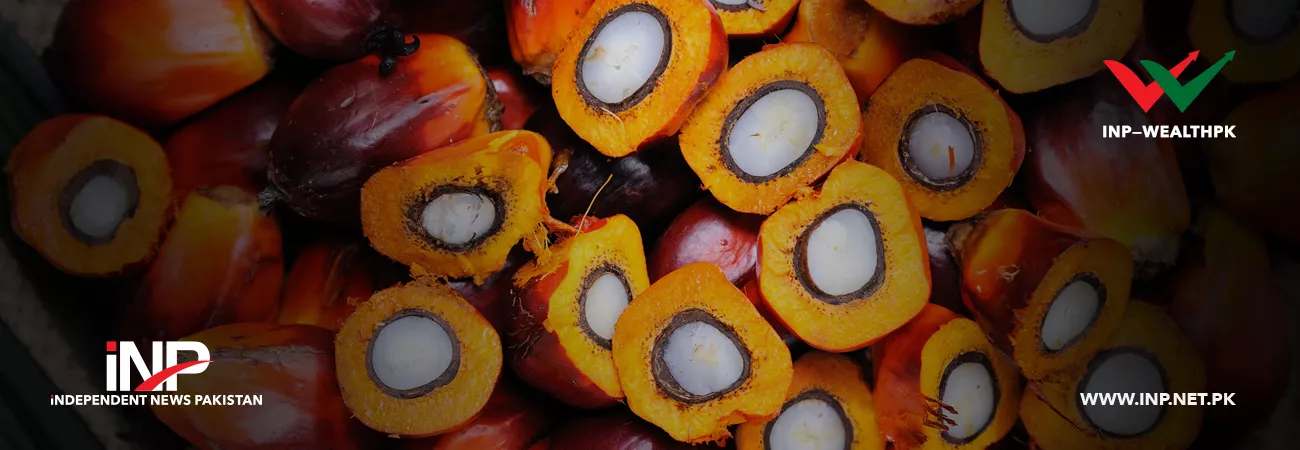INP-WealthPk
Arooj Zulfiqar
Pakistan needs to focus on large-scale palm oil cultivation to lessen its reliance on edible oil imports and save a significant amount of foreign currency.
Talking to WealthPK, Principal Scientific Officer at the National Agricultural Research Centre (NARC) Nazakat Nawaz said, “despite ecological diversity, suitable climate, and vast fertile land, Pakistan is unfortunately among the lowest edible oil-producing countries. Only 30% of our domestic oil needs are satisfied by local production, with the remaining 70% coming from imports. The cost of importing edible oil into Pakistan has surpassed $4 billion annually to meet the pressing demand of its population.”
“This demand-supply gap shows Pakistan's heavy dependence on the imported oilseeds and refined palm oil. Although the government has started projects to increase the production of oilseeds from rapeseed, sunflower, and olive oil, the harvest cycle will take about the next seven years to complete.”
He added, “in accordance with the Preferential Trade Agreement, Pakistan buys 25% of its palm oil products from Malaysia and 75% of its palm oil products from Indonesia. Despite these agreements, Pakistan faces high export duties on crude palm oil and increasing prices of refined palm oil. Therefore, it is essential that Pakistan should go for palm oil plantations and reduce its import bill. Pakistan needs to take the advantage of its coastal zones where it can get maximum yield,” he said.
“Some of our areas are best for palm oil plantations with suitable temperatures between 24 and 35 degrees Celsius. For successful oil palm plantation in the coastal zone, land preparation is to be done as for other crops like cotton and wheat,” Nazakat said.
The Sindh government has started a palm oil cultivation project as part of the annual development plan for Sindh 2021–2022. The Sindh Forest Department has sold 1,000 acres of land to the Sindh Coastal Development Authority (SCDA) for palm tree farming. A project to plant palm trees on 50 acres of land, of which 30 acres have already been farmed, has been started by SCDA at a cost of Rs2 million.
In addition to the government's decision to plant palm trees, it is essential to construct additional solvent extraction facilities close to the plantation. Only one extraction unit, capable of covering up to 100 acres of land, has been installed thus far.
The NARC official further said, “according to the Malaysian experts, Pakistan’s coastal belt is well suited for production of palm oil. Despite requiring large amounts of water, it is still 50% less than what banana trees need. For the current plantation of 35 acres, a total of 30mm is needed every day (through flood irrigation). During the monsoon season, it becomes rain-dependent and irrigation is not necessary for around three months.”
Pakistan may experience severe food shortages and a sharp increase in the gap between its imports and exports if it fails to adapt to the changing environmental conditions and develop modern farming methods. In the following years, Pakistan's agricultural productivity will ultimately determine the GDP and trade outlook of the country.
Credit : Independent News Pakistan-WealthPk













